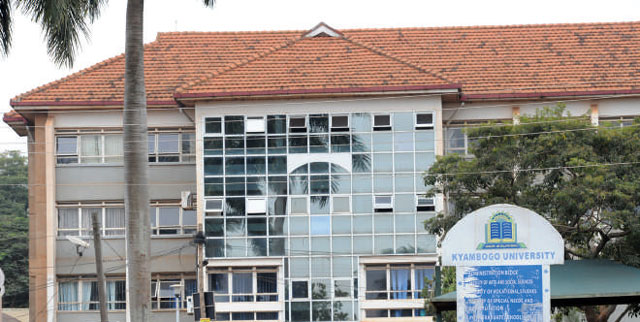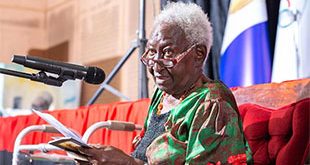
Kampala, Uganda | THE INDEPENDENT | Kyambogo University has set aside more than Shillings 400 million to set up an online platform for continuing students as they move to tap into the digital learning space.
Dr. John Okuonzi, the Director of Information Communication and Technology Kyambogo University, says management approved the decision to invest in online learning platforms after realising that the Covid-19 pandemic may take long to warrant face to face learning.
He says the money will be spent on training lecturers how to use online tools, purchase online teaching equipment and induct students. Dr. Okuonzi however notes that unlike other universities which have developed independent Learning Management Systems-LMS, Kyambogo will use goggle classrooms and meeting platforms.
Dr. Okuonzi told URN that the ICT Directorate was working with faculties, schools and heads of departments to organize an intensive training program for teaching staff and induct students to use the online tools for teaching and learning. “This is to prepare and build the capacity of teaching staff and students to use the new methods of delivery ahead of the opening of the university,” he said.
The University Deputy Vice Chancellor, Professor Eli Katunguka communicated the development to staff in his June 18th, 2020 memo. He explained that the University Senate has adopted the report with plans to upscale teaching with blended learning in the long term and adapt to emergency remote teaching in the short-term using goggle classroom and goggle meet platforms.
He explained that the University management constituted a COVID-19 task force to develop strategies for reopening the University to enable delivery of quality services to students while ensuring safety of all staff and students from contracting the virus.
“The task force working with Deans and heads of departments decided on mechanisms for the adoption of e-learning and ICT services for teaching and learning and with recommendations on other issues that may impact on the preparedness of the University to deliver services during and after the Covid-19 pandemic,” he said.
Prof Katunguka says that the disruptions witnessed in teaching and learning in all institutions of learning in Uganda as a result of the COVID-19 pandemic demand that both staff and students change the way they operate.
“All teaching staff and students must embrace the use of the online tools and resources for teaching and assessment to reduce physical contact and over dependence on face-to-face mode of teaching and learning which has clearly proved not tenable in situations of pandemic like COVID-19,” he said.
Adding that, “The Directorate of ICT and services-DICTS has been mandated to coordinate and work with deans and head of departments to implement senate decision on the adoption of emergency remote teaching.”
On the implementation of the program, Dr. Okuonzi notes that they still experience the challenge of poor internet connectivity, power outages and the fact that over 30% of the students lack access to smartphones or computer.
He however says students will have nothing to do if this is the only option of attending classes. He noted that students can use the money they use for transport to classes to buy data. Dr. Okuonzi also disclosed that there will be affirmative action for students with disabilities like those with visual, hearing and physical impairments.
Dr. Okuonzi explains that google as one of the online tools that will be used is very easy when students are inducted first. Sumaya Mugerwa, a third year student of bachelor of Procurement and Logistics expressed doubt whether the online initiative will benefit students and how efficient it will be.
Mugerwa noted that while she is proficient with internet usage and has access, some students from rural urban settings might not afford the costs because of poor connectivity. Jonathan Tundulu, the Guild President Kyambogo University said while the initiative is a positive development, the problem is on students who cannot access the required gadgets for online learning.
Balaam Nuwamanya, a first year student of bachelor of Vocational studies in industrial art and design, said he is ready for online learning. He however expressed concern about the poor connectivity in Isingiro district where he hails from, saying the moment he enters home, he switches to Tanzania’s Vodacom, which doesn’t favor him.
Carol Nakibira, a third year student says online learning isn’t affordable for her. She says that some lecturers used to send reading materials on the class WhatsApp group but some students could miss out due to lack of smartphones.
******
URN
 The Independent Uganda: You get the Truth we Pay the Price
The Independent Uganda: You get the Truth we Pay the Price



